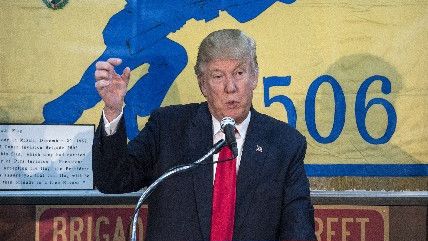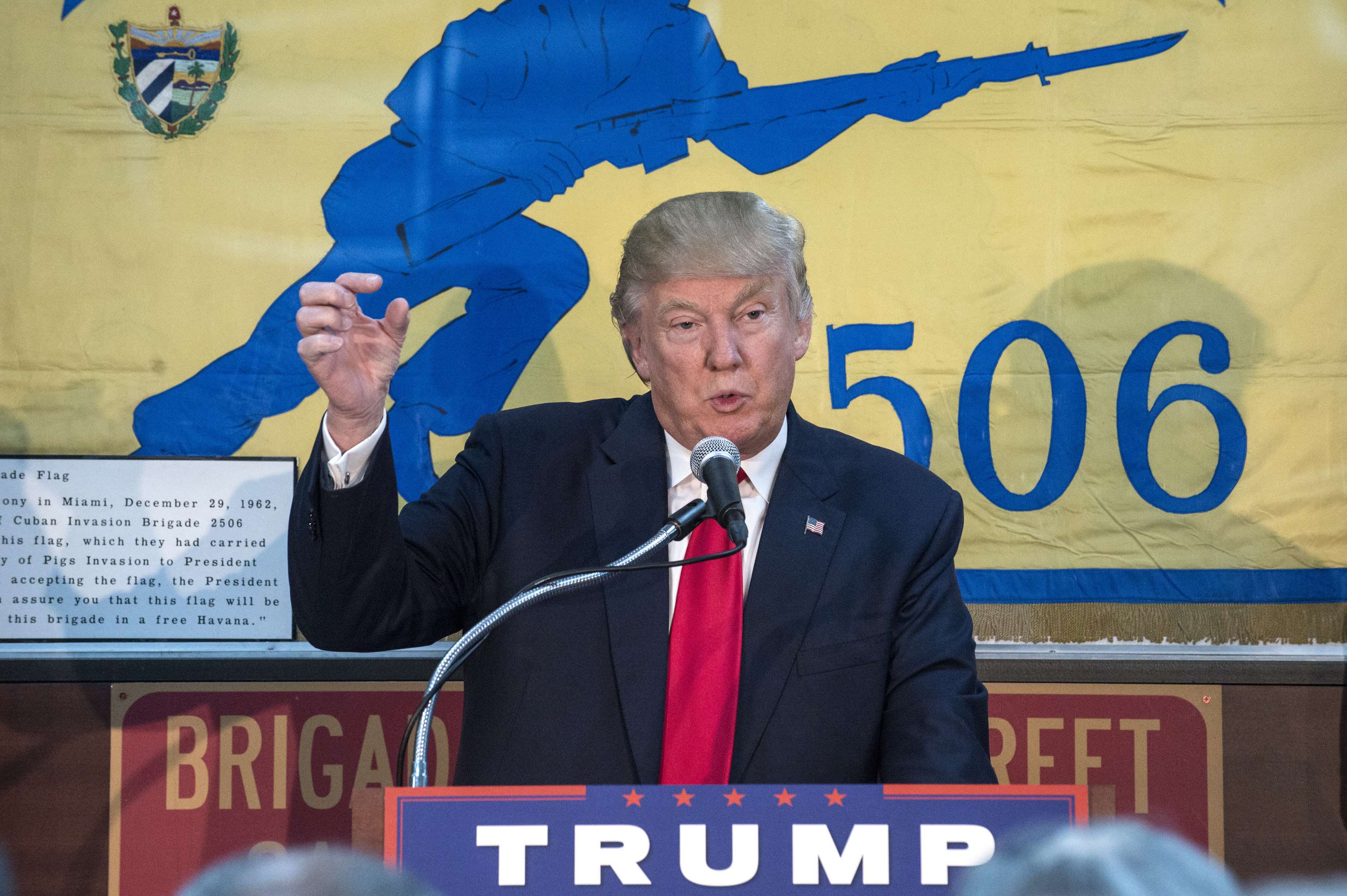Donald Trump Seems Likely to Throw Cold Water on the Thaw in U.S.-Cuba Relations
Following Fidel Castro's death, Republicans want to revert to a policy that failed for half a century.


President-elect Donald Trump's policy on the future of U.S.-Cuba relations has never been exactly made clear.
At various points during the Republican primary campaign, he described President Obama's restoration of diplomatic relations with Cuba as "fine" but then later described the approach as a "very weak agreement" that he would reverse as president "unless the Castro regime meets our demands." But Trump told CNN's Wolf Blitzer that he had aspirations to open a hotel in Cuba, and Newsweek also reported that one of Trump's companies did business with Cuba in the late 1990s, in violation of the embargo.
Now that Fidel Castro is dead, rumblings among Trump's inner circle and some Republican heavyweights appear to indicate the next president intends to slow or even reverse some of the recent political and economic openings between the two countries.
RNC chairman and Trump's incoming-chief of staff Reince Priebus told Fox News Sunday that he "absolutely" expects Trump to push back on the lifting of certain sanctions without some major changes from Raul Castro's government. Priebus added, "Repression, open markets, freedom of religion, political prisoners—these things need to change in order to have open and free relationships, and that's what president-elect Trump believes, and that's where he's going to head."
Two of Trump's bitterest rivals during the primary campaign, Marco Rubio and Ted Cruz—both senators of Cuban descent—said yesterday that they would be in favor of rolling back the normalization of relations with Cuba.
Cruz said on ABC's This Week that "what the Obama administration has done has strengthened Raul Castro," while Rubio reportedly said, "now more than ever Congress and the new administration must stand with [the Cuban people] against their brutal rulers and support their struggle for freedom and basic human rights."
What all these Republican bigwigs appear to be missing is that the half-century-long embargo did not defeat the Castros, or communism, or lead to any meaningful liberalization of economic or human rights on the island nation. If anything, it provided the Castros with a ready-made excuse that the source of Cubans' poverty and isolation was yanqui imperialism.
Isolating the Castros hasn't worked and is a self-spiting position from an American point of view. Allowing for more trade with Cuba will allow for more information to flow to the people, who when freed from the myopia caused by some of the strictest government censorship in the world will stand a better shot of overthrowing their tyrannical one-party system. Reverting to the previously failed position is worse than fighting the last war, it's fighting the last losing war.


Show Comments (59)